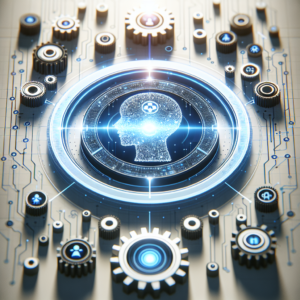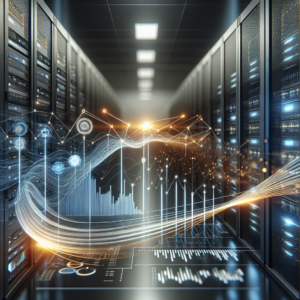What do you think when you hear the term “Artificial Intelligence”? It can sound a bit intimidating at first, especially with all the different applications and technologies involved. However, I believe that understanding the basics of AI can make the concept much more approachable and even exciting.
What is Artificial Intelligence?
Artificial Intelligence, or AI, refers to the simulation of human intelligence in machines that are programmed to think and learn like humans. This technology enables systems to perform tasks that typically require human intelligence, such as visual perception, speech recognition, decision-making, and language translation. It’s incredible how much has developed over the years, and I find it fascinating to see AI become a part of our everyday lives.
Historical Background of AI
To appreciate AI fully, it’s helpful to look back at its history. The term “Artificial Intelligence” was first coined by John McCarthy in 1955. In the early days, tools like rule-based systems were created, which could perform specific tasks. However, these systems were limited and often required extensive human intervention.
In the 1980s, interest began to grow in AI, leading to the development of machine learning. This approach allowed computers to learn from data and improve their performance over time without being explicitly programmed. I can’t help but admire how far we’ve come since those early days.
Key Concepts of AI
Understanding AI involves familiarizing ourselves with several key concepts. Here are some foundational elements that form the backbone of artificial intelligence:
Machine Learning
Machine learning is a subset of AI where algorithms learn from data. Instead of being programmed with specific instructions, machines are fed data and use statistical techniques to learn patterns. This method allows them to make predictions or decisions based on new input. I find it fascinating how algorithms can improve themselves just by analyzing more data.
Deep Learning
Deep learning is a subset of machine learning inspired by the structure and function of the human brain. By using neural networks with many layers, deep learning algorithms can analyze vast amounts of data and recognize complex patterns. This technology powers impressive applications like facial recognition and language translation. It’s almost like giving a computer a kind of ‘brain.’
Natural Language Processing (NLP)
Natural Language Processing is another exciting area of AI that enables machines to understand, interpret, and respond to human language in a valuable way. I often marvel at how technologies like chatbots and voice assistants utilize NLP to interact with people. It’s pretty amazing how far these systems have come in understanding human emotions and context.
AI Applications in Daily Life
AI isn’t just a concept; it’s already integrated into numerous aspects of our lives. Here are some applications where I often encounter AI tools:
Virtual Assistants
I use virtual assistants like Siri and Alexa for a variety of tasks, from setting reminders to asking for weather updates. This convenience showcases how AI can simplify everyday activities. These assistants use NLP and machine learning to understand and respond to my requests effectively.
Recommendation Systems
When I browse platforms like Netflix or Amazon, the recommendations tailored to my preferences are a result of AI. These systems analyze my previous choices and suggest similar content, enhancing my experience. It’s like having a personal shopper or curator at my fingertips.
Autonomous Vehicles
The advent of self-driving cars has raised both excitement and questions. Companies are using AI algorithms to process data from sensors and cameras, allowing cars to navigate and make decisions in real-time. I can’t help but feel a mix of awe and anticipation for the future of transportation.
Benefits of Artificial Intelligence
The benefits of AI extend across various sectors and aspects of life. Here are some significant advantages that I believe are noteworthy:
Improved Efficiency
One of the most substantial benefits of AI is its ability to automate repetitive tasks. By taking on labor-intensive jobs, AI enables people like me to focus on more creative and fulfilling work. For instance, AI can manage scheduling or data entry, streamlining processes and boosting productivity.
Enhanced Decision-Making
AI systems can analyze vast amounts of data comprehensively and quickly, providing insights that influence decision-making. Whether in finance or healthcare, organizations use AI to make informed choices that can lead to better outcomes. Recognizing patterns and trends can save time and lead to more effective strategies.
Personalized User Experiences
I appreciate how AI can tailor experiences to individual needs. Whether it’s through personalized learning platforms or custom advertisements, AI makes interactions more relevant and engaging. It feels rewarding when technology knows my preferences and adapts accordingly.
Challenges and Concerns
While AI offers numerous benefits, it’s essential to address some challenges and concerns it brings. Understanding these issues can help me navigate the landscape of artificial intelligence more thoughtfully.
Job Displacement
As AI automates more tasks, there are concerns about job displacement. Many fear losing their jobs to machines or algorithms that can perform tasks faster and with fewer errors. I think it’s essential to foster a conversation about how we can evolve alongside AI and prepare for future job markets.
Ethical Considerations
Ethics play a crucial role in developing AI systems. Issues such as data privacy, surveillance, and bias must be taken seriously. I believe that responsible AI development requires ongoing discussions surrounding ethical guidelines to ensure fairness and transparency.
Security Risks
Like all technologies, AI can be vulnerable to cyberattacks. The idea of AI being used maliciously creates fears surrounding security and safety. It’s vital for developers and organizations to prioritize security measures and safeguard sensitive information.
The Future of AI
Looking ahead, I can’t help but be excited about the possibilities AI holds. As researchers and developers continue to innovate, I imagine we’ll see even smarter systems capable of more complex tasks.
AI in Healthcare
AI holds immense potential in healthcare, from diagnosing diseases earlier to personalizing treatment plans. Machine learning algorithms can analyze patient data and identify patterns that may go unnoticed by human doctors. I see it revolutionizing how medical professionals approach patient care.
AI in Education
The education sector is also experiencing a wave of AI-driven changes. With adaptive learning platforms breaking down traditional barriers, I find it inspiring that learners can receive personalized educational experiences suited to their unique needs. The potential to enhance learning outcomes is truly exciting.
AI and Sustainability
As climate change becomes a pressing issue, AI could play a crucial role in promoting sustainability. From optimizing energy consumption to developing smarter agriculture practices, it holds the potential to help us make more informed decisions that positively impact our planet. I feel hopeful about what AI can contribute in this area.
Conclusion
As I reflect on everything I’ve shared, it becomes evident that understanding the basics of Artificial Intelligence opens up a world of opportunities. While challenges do exist, the benefits of AI far outweigh the potential downsides when approached thoughtfully and responsibly. I genuinely believe that as technology continues to evolve, so too will my understanding and appreciation of its capabilities. AI is not just a futuristic dream, but a present reality that can shape our lives in meaningful ways, and I can’t wait to see what the future holds.






